hankyoreh
Links to other country sites 다른 나라 사이트 링크
[Interview] British author sheds light on North Korea’s transition to capitalism in “North Korea Confidential”
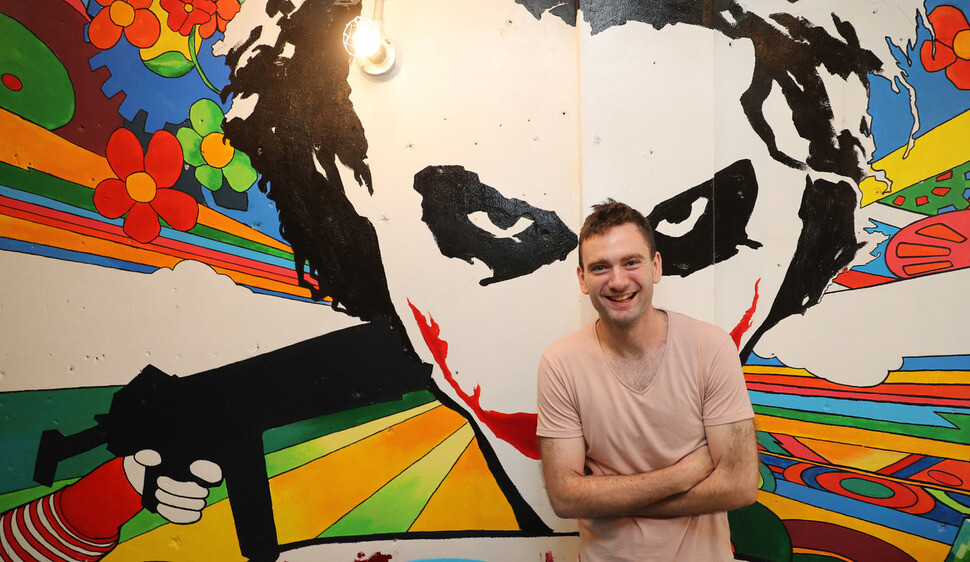
In 2012, Daniel Tudor, who was the Economist’s correspondent in South Korea at the time, asserted in print that South Korean beer tasted worse than North Korea’s Taedonggang Beer. The next year, the manager of the Taedonggang Brewing Company invited him to visit. During a weeklong trip to the North, Tudor drew upon his experience of running a brewing company to deliver a lecture about entrepreneurship and marketing to senior North Korean officials.
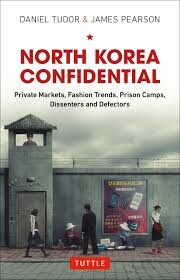
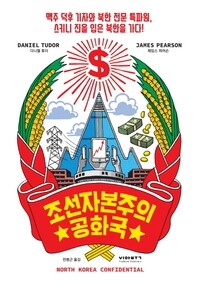
According to Tudor, most of the people who are running big businesses in North Korea are bureaucrats. He explained that a lot of high-ranking officials use their power to sell North Korean products in China and Chinese products in North Korea. But what took him by surprise was when one North Korean official proposed to Tutor that each party invest 100 million North Korean won (about US $12,000, according to the market exchange rate) as part of a joint venture to open a brewery in Pyongyang. Tudor refused the offer, but it left a big impression.
Two Brits have published a book dealing with the daily lives of North Koreans called “North Korea Confidential.” Tudor, who is one of the authors, first set foot in South Korea during the World Cup in 2002. He was taken with Koreans’ passion, and during seven years or so spent in South Korea between stints back in the UK, he has become thoroughly “Koreanized.”
Tudor is well-known for setting up The Booth Brewing Company with South Korean business partners in 2013 with the hope of upgrading South Korea’s mediocre beer market. At the moment, he has been appointed as a foreign press policy advisor for the Blue House for the Moon Jae-in government, pending a background check.
Tudor’s co-author, James Pearson, is the Reuters’ correspondent in Seoul. Pearson is an expert on North Korea who has been there seven times and holds a Master’s degree from Cambridge University, where he did research on the North. (Pearson was unable to take part in the interview with Tudor due to time constraints; Reuters requires its staff to receive prior approval for any interviews with other media organizations.)
When Tudor sat down with the Hankyoreh at The Booth, a pub on Gyeongridan Street in Itaewon, Seoul, on Aug. 16, he remarked that the beer made by South Korea’s chaebols was still worse than North Korea’s Taedonggang beer. The impetus for writing the book, Tudor explained, was that the foreign press and experts only took interest in one of the 25 million people living in North Korea: North Korean leader Kim Jong-un. To understand what direction the North is headed, the authors thought, they would need to taking a look at the other North Koreans.
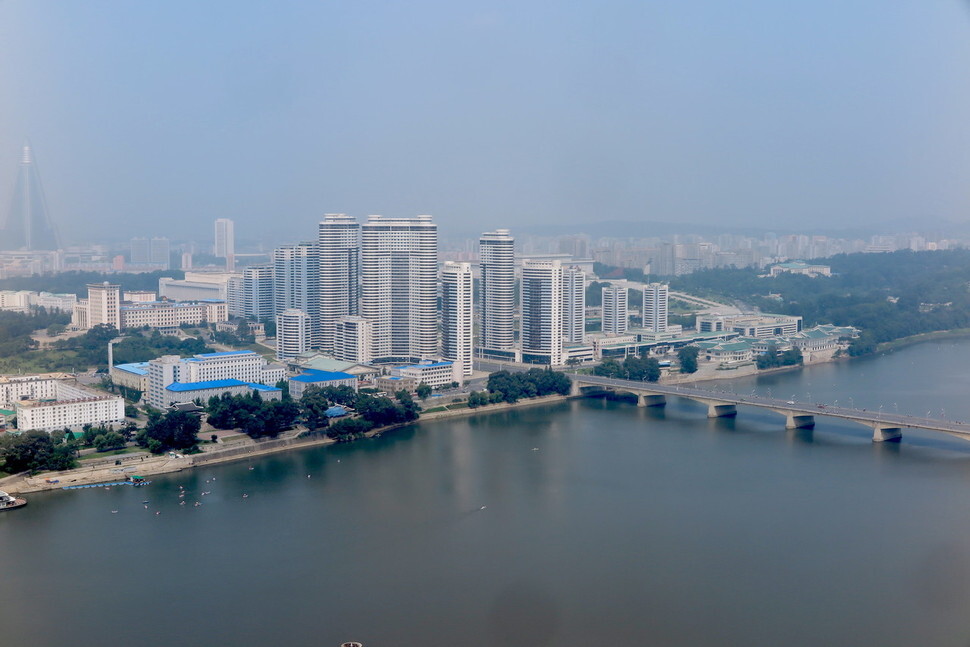
Young people in Pyonyang with tablets and skinny jeans
So Tudor and Pearson assembled information about the situation inside North Korea from a wide range of sources, including the members of civic groups related to North Korea, ethnic Chinese who frequent the North, North Korean defectors and actual North Koreans whom they met in ways they cannot disclose. Since there’s so much inaccurate information about North Korea, the authors settled on the rule of only including information in the book that had been confirmed by at least three trustworthy sources. After they put the pieces together, the picture that emerged of the lives of North Koreans was closer to the market economy of capitalism than the planned economy of communism.
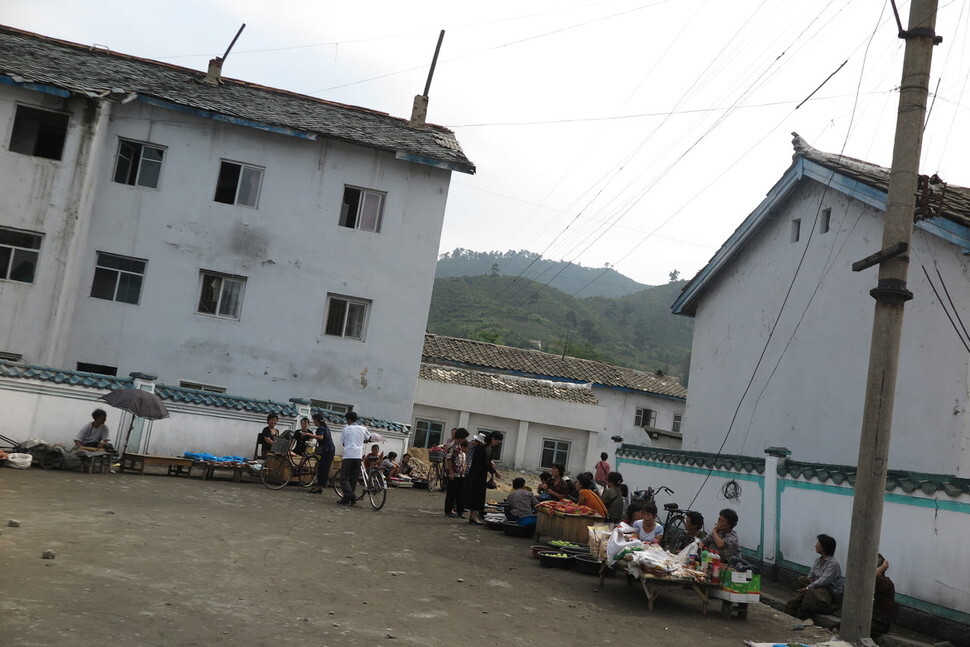
Pyongyang has been getting a facelift as skyscrapers continue to go up. Apartments at Mansudae in downtown Pyongyang (nicknamed “Pyonghattan,” a pun on Manhattan) are sold for more than US$100,000. There are even realtors doing business outside the reach of the law. In Pyongyang, it’s common to see people walking around carrying tablet computers. There are even women wearing miniskirts and skinny jeans. It’s even possible to travel around the country, as long as you bribe the right officials. North Korea’s system of surveillance and information control is being neutralized by tiny flash drives, which are easy to transmit and conceal, and that carry dozens of TV shows, movies and pornos from South Korea and other countries.
The decisive factor that brought these changes to North Korean society was the great famine of the mid-1990s. After the North Korean regime was established in 1948, a nationwide passion to build a “socialist paradise” atop the industrial foundation left by the Japanese colonial administration fueled high growth, and as late as 1973, North Korea had a higher GDP than South Korea. But Soviet aid dried up, and major flooding led to a severe famine that resulted in the death of as many as three million people between 1994 and 1995. Having learned that the state could not take responsibility for their lives. North Koreans set up jangmadang (local markets) to provide for themselves and gradually began to accumulate wealth.
In North Korea today, nearly everyone is part of the dual economic systems, in one fashion or another. Even among the loyal citizens of Pyongyang, at least one member of the family is working in the jangmadang (unofficial market). Not being involved can itself be dangerous, since it arouses suspicions about dubious sources of income – such as remittances from relatives who have defected to South Korea. This is the product of the dual currency systems operating in North Korea. The government’s designated exchange rate is 96 won to the dollar, but the exchange rate in the markets is 8,000 won to the dollar. Government employees make between 1,000 and 6,000 won a month, which is less than a dollar on the black markets – not enough to buy a single pack of cigarettes. The consequence is the evaporation of any motivation to work hard at state-designated jobs. Public servants accept bribes, and workers steal goods from factories to sell them on the black market.
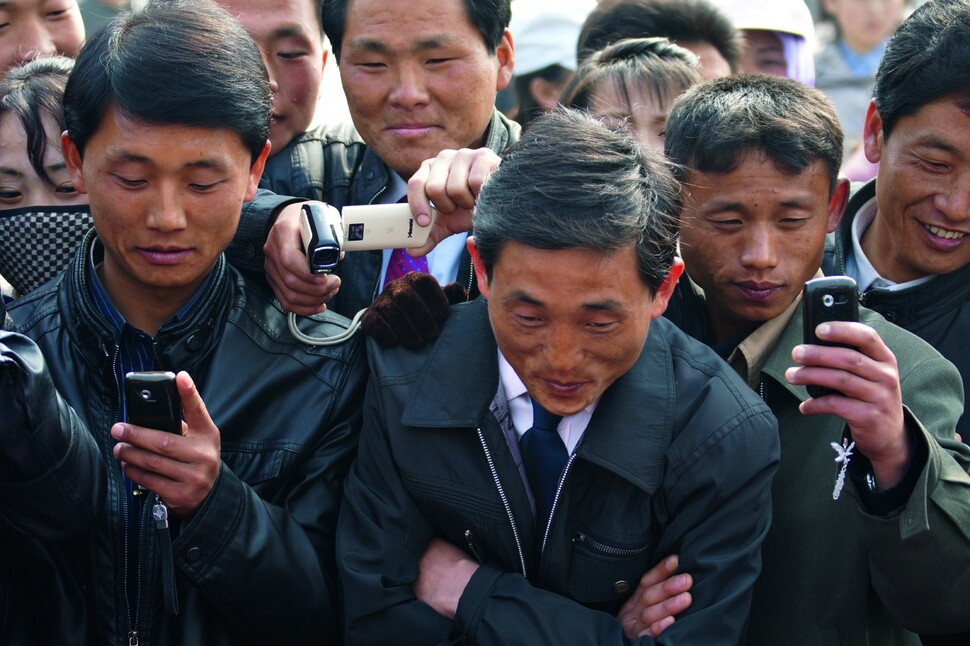
Balancing capitalism with an authoritarian regime
Will the expansion of the markets and the creep of capitalism into the lives of North Koreans lead to the collapse of the North Korean regime? The authors don’t think so, given the existence of authoritarian capitalist states like China and Singapore. Just as China has a capitalist economy while retaining the politics of a Communist single-party state, Tudor points out, the North Korean regime is unlikely to collapse even if it does liberalize its economy. On top of that, the North Korean regime is more patient and resilient than other dictatorships, he says.
What about pressure from North Korea’s neighbors? Though some people argue that the sanctions against North Korea could bring it to its knees, Tudor believes that they are overlooking the fact that Pyongyang is overflowing with luxury goods and furthermore has been enjoying economic growth despite constant sanctions over the past few years. The scenario that is most likely to occur in North Korea in the short to mid-term, the authors believe, is a gradual liberalization of the state under the control of the current regime.
Tudor is in agreement with the government's approach of pursuing dialogue with North Korea. At the close of the interview, he suggested it is correct for Seoul to try to reassure Kim Jong-un that it has no intention of toppling his regime. “I don't believe we can make North Korea collapse. Instead, we should try to create an environment where the regime feels more comfortable in pursuing economic development, in order that North Koreans may have better living conditions”.
By Kim Ji-hoon, staff reporter
Please direct questions or comments to [english@hani.co.kr]

Editorial・opinion
![[Column] Park Geun-hye déjà vu in Yoon Suk-yeol [Column] Park Geun-hye déjà vu in Yoon Suk-yeol](https://flexible.img.hani.co.kr/flexible/normal/500/300/imgdb/original/2024/0424/651713945113788.jpg) [Column] Park Geun-hye déjà vu in Yoon Suk-yeol
[Column] Park Geun-hye déjà vu in Yoon Suk-yeol![[Editorial] New weight of N. Korea’s nuclear threats makes dialogue all the more urgent [Editorial] New weight of N. Korea’s nuclear threats makes dialogue all the more urgent](https://flexible.img.hani.co.kr/flexible/normal/500/300/imgdb/original/2024/0424/7317139454662664.jpg) [Editorial] New weight of N. Korea’s nuclear threats makes dialogue all the more urgent
[Editorial] New weight of N. Korea’s nuclear threats makes dialogue all the more urgent- [Guest essay] The real reason Korea’s new right wants to dub Rhee a founding father
- [Column] ‘Choson’: Is it time we start referring to N. Korea in its own terms?
- [Editorial] Japan’s rewriting of history with Korea has gone too far
- [Column] The president’s questionable capacity for dialogue
- [Column] Are chaebol firms just pizza pies for families to divvy up as they please?
- [Column] Has Korea, too, crossed the Rubicon on China?
- [Correspondent’s column] In Japan’s alliance with US, echoes of its past alliances with UK
- [Editorial] Does Yoon think the Korean public is wrong?
Most viewed articles
- 1[Column] Park Geun-hye déjà vu in Yoon Suk-yeol
- 2Why Korea shouldn’t welcome Japan’s newly beefed up defense cooperation with US
- 3[Guest essay] The real reason Korea’s new right wants to dub Rhee a founding father
- 4Will NewJeans end up collateral damage in internal feud at K-pop juggernaut Hybe?
- 5Thursday to mark start of resignations by senior doctors amid standoff with government
- 6N. Korean hackers breached 10 defense contractors in South for months, police say
- 7[Column] ‘Choson’: Is it time we start referring to N. Korea in its own terms?
- 8Kim Jong-un expressed ‘satisfaction’ with nuclear counterstrike drill directed at South
- 9[Editorial] New weight of N. Korea’s nuclear threats makes dialogue all the more urgent
- 10Senior doctors cut hours, prepare to resign as government refuses to scrap medical reform plan